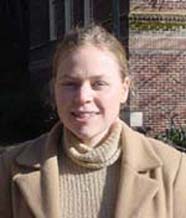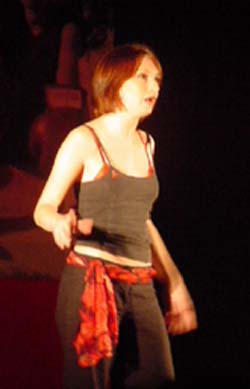"The Vagina Monologues" raises awareness about violence against women in the community
As a student activity center at the university, the Women's Center actively works to promote awareness of women's issues in the community.
Guru Simrat Khalsa, education and outreach coordinator at the Women's Center, works to spread awareness and prevent violence against women in the community.
Khalsa, a university journalism student from Norway, has strongly felt the need to create awareness about violence against women since she was a child. She went to school in India for a while when she was about 8 years old, where she noticed a big cultural difference.
"There were a lot of things that women can't do, and I just think that women should have an equal right," Khalsa said. This year, she produced the controversial play "The Vagina Monologues," which creates awareness about violence against women through women's sexuality issues.
"The Vagina Monologues" is a part of the V-Day campaign, a worldwide movement to create awareness about violence against women, she said. Any extra money from the show goes toward various groups that prevent violence against women.
The play was held during Valentine's week, and every night was sold out.
"This play has brought lots of discussions. People are really talking about it, making people talk about different issues. And it's definitely changing a lot of people's perspectives on something. So I think it's having a decent impact on the university community as well as rest of the community," she said. "A 15-year-old girl said that the play had a really strong impact on her and made her aware of things that could happen to her."
Khalsa said that creating a space for women to talk about their experiences is essential to raising awareness about violence against women.
"I think [the violence against women] happens a lot in our community where people don't talk about it because it's not a thing that people feel comfortable about expressing," she said. "And I think it's really important that women are helped not to feel guilty or not feel ashamed about something like that happening to them. Instead, they come out and help people, so that more people would talk about what happened, so that more awareness would be in the community."
Go to the next page
 An actor performs in "The Vagina Monologues" for the V-Day college campaign of the University of Oregon.
An actor performs in "The Vagina Monologues" for the V-Day college campaign of the University of Oregon.